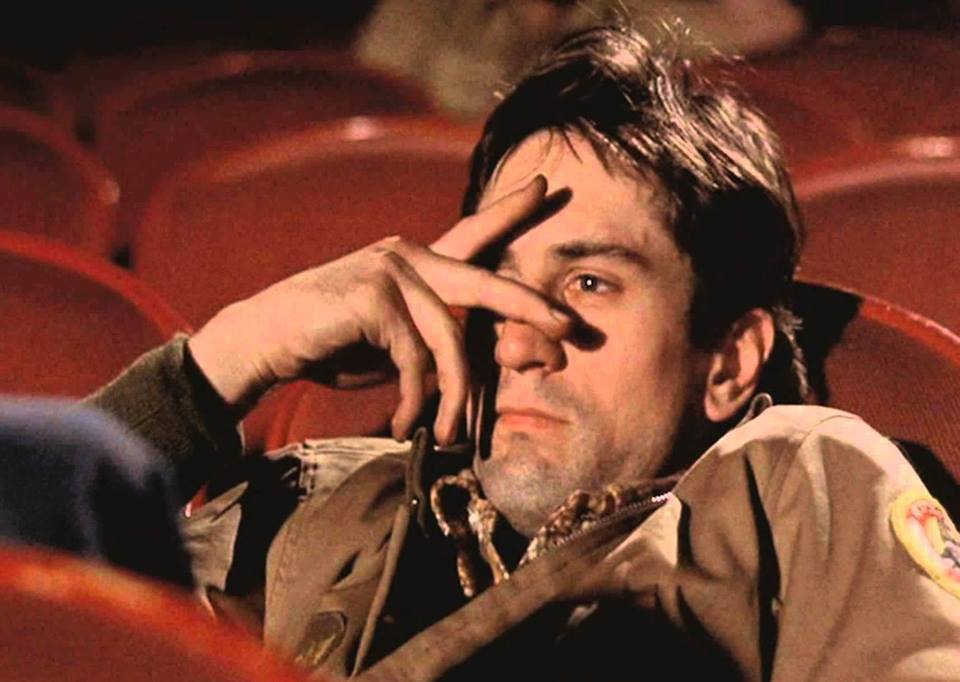curator's noteThis week our writers return to MUBIVIEWS with the classic American vigilante film TAXI DRIVER (Martin Scorsese 1976). As a regular favourite on lists of the greatest film of all time, what will our writers make of this critically acclaimed Neo-noir. TAXI FOR ONEMatthew WearsLoneliness is a theme that can be extremely difficult to portray on the silver screen as it often relies entirely on both the actors performance and the space given to them by the camera to allow an audience to fully understand a character’s feelings. Director Martin Scorcese explores this masterfully and extensively in his 1976 neon-laced noir, TAXI DRIVER, a film where cinematography plays an enormous role in creating the distance between Travis Bickle (Robert De Niro) and the gloomy, bleak streets of 1970s New York City. Michael Chapman’s camera work constantly emphasises Bickle’s isolation within his surroundings, using techniques and shots that shows him to be the outsider that he believes himself to be. The film is doused in shots that directly inform the complex, twisting narrative, however none more intriguing than the slow and rather unconventional tracking shot in which Travis pleads to Betsy (Cybil Shepherd) to give him a second date having spectacularly blown his first one. The camera shifts from initially framing Travis, tracking right until he is left off screen to show nothing other than a dull, desolate hallway leading out into the dark and dangerous New York streets. This is a visual representation of the remoteness that Travis feels, even when surrounded by one of the most iconic cities he finds himself alone. He is around the corner, hidden from the outside world, perhaps a metaphor questioning the ex-marine’s sense of existence after serving in the Vietnam war. TAXI DRIVER is a film created with such astounding attention to detail, that every shot can be analysed in order to gain a greater understanding of the psyche of enigmatic anti-hero, Travis Bickle. Every shot has significance in constructing the warped and lonely world in which he lives, and only a handful of films use camerawork in such a visually expressive manner. It is for this reason that this landmark New-Hollywood film projected both director and lead into stardom, cementing itself as one of the most enthralling character studies ever produced. Every day this week a different writer will provide their perspective on our MUBIVIEWS film and each post will be open to comments from our readers. Watch TAXI DRIVER on mubi.com until 4 July 2017 and join the discussion!
1 Comment
Steven Fegan
22/6/2017 02:54:51 pm
Excellent point made about the attention detail of the film. For me, it was a struggle to pick one scene to analyse as there are so many instances throughout the film which represent the troubled mindset of Travis.
Reply
Your comment will be posted after it is approved.
Leave a Reply. |
MUBIVIEWSOne MUBI film, five perspectives, endless possibilities. Archives
July 2017
Categories
All
|



 RSS Feed
RSS Feed
